Books
Books

Pleasure Activism: The Politics of Feeling Good
How do we make social justice the most pleasurable human experience? How can we awaken within ourselves desires that make it impossible to settle for anything less than a fulfilling life? Author and editor adrienne maree brown finds the answer in something she calls "pleasure activism," a politics of healing and happiness that explodes the dour myth that changing the world is just another form of work. Drawing on the black feminist tradition, she challenges us to rethink the ground rules of activism. Her mindset-altering essays are interwoven with conversations and insights from other feminist thinkers, including Audre Lorde, Joan Morgan, Cara Page, Sonya Renee Taylor, and Alexis Pauline Gumbs. Together they cover a wide array of subjects—from sex work to climate change, from race and gender to sex and drugs—building new narratives about how politics can feel good and how what feels good always has a complex politics of its own.
Building on the success of her popular Emergent Strategy, brown launches a new series of the same name with this volume, bringing readers books that explore experimental, expansive, and innovative ways to meet the challenges that face our world today. Books that find the opportunity in every crisis!
adrienne maree brown, author of Emergent Strategy and co-editor of Octavia's Brood, is a social justice facilitator focused on black liberation, a doula/healer, and a pleasure activist. She lives in Detroit.

Everything for Everyone: An Oral History of the New York Commune, 2052-2072
By the middle of the twenty-first century, war, famine, economic collapse, and climate catastrophe had toppled the world's governments. In the 2050s, the insurrections reached the nerve center of global capitalism—New York City. This book, a collection of interviews with the people who made the revolution, was published to mark the twentieth anniversary of the New York Commune, a radically new social order forged in the ashes of capitalist collapse.
Here is the insurrection in the words of the people who made it, a cast as diverse as the city itself. Nurses, sex workers, antifascist militants, and survivors of all stripes recall the collapse of life as they knew it and the emergence of a collective alternative. Their stories, delivered in deeply human fashion, together outline how ordinary people's efforts to survive in the face of crisis contain the seeds of a new world.

The Essential Dykes to Watch Out for
For twenty-five years Bechdel’s path-breaking Dykes to Watch Out For strip has been collected in award-winning volumes (with a quarter of a million copies in print), syndicated in fifty alternative newspapers, and translated into many languages. Now, at last, The Essential Dykes to Watch Out For gathers a “rich, funny, deep and impossible to put down” (Publishers Weekly) selection from all eleven Dykes volumes. Here too are sixty of the newest strips, never before published in book form.
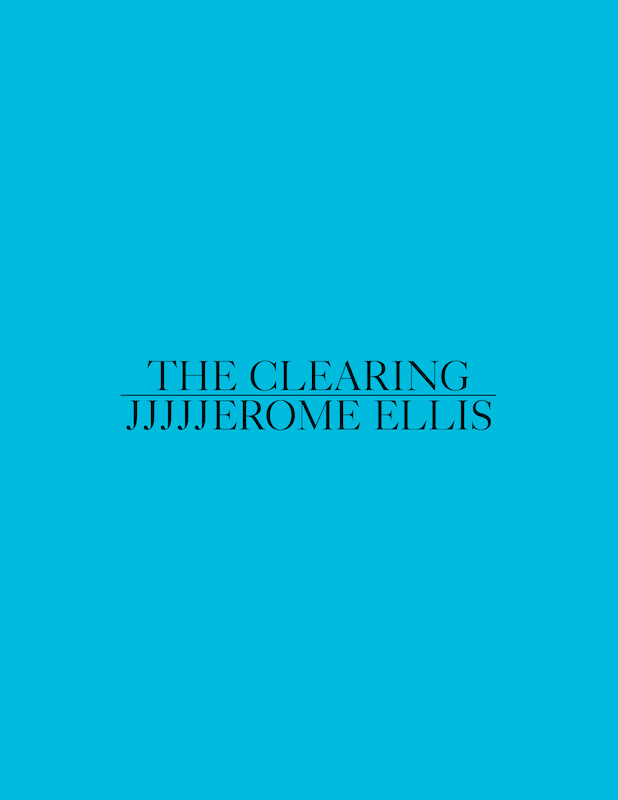
The Clearing
JJJJJerome Ellis’s The Clearing asks how stuttering, blackness, and music can be practices of refusal against hegemonic governance of time, speech, and encounter. Taking his glottal block stutter as a point of departure, Ellis figures the aporia and the block as clearing to consider how dysfluency, opacity, and refusal can open a new space for relation. Stemming from Ellis's essay "The clearing: Music, dysfluency, Blackness, and time,” published in 2020 in the Journal of Interdisciplinary Voice Studies (Volume 5, Issue 2) the present volume transcribes and translates his investigation across genres and media, turning to the page to ask: How can a book bear the trace of music, and the racialized, disabled body? Can a book be not just a manuscript, but a glottoscript? Ellis opens space for thinking liberation theoretically, historically, and lyrically.
"The Clearing is many things: a lyrical celebration of and inquiry into the intersections of blackness, music, and disabled speech; a restless interrogation of linear time; an intimate portrait of the author’s real-time experience of his stutter; a baptism in syllable and sound; and a manuscript illuminated by The Stutter. At its core, Ellis’ metaphor of the clearing becomes a place of possibility and “momentary, transitory, glimpsed liberation.” He invites us to meet him there."—Claudia Rankine

Carmelina: Figures
Ronaldo V. Wilson’s Carmelina: Figures excavates the territory between memory, nation, and embodiment, exploring place as a discipline of the body and an extension of the hand. Through poems, photographs, drawings, records of performance, and home movies recorded in Guam, Tennessee, and the Subic Bay between 1962 and 1979, Wilson reckons with familial heritage, diaspora, and legacies of militarism.
The book pays homage to Wilson’s mother, Carmelina, who served for most of her working life as a certified nursing assistant at Florin Convalescent, an assisted living facility in South Sacramento, California. A glut of signals and media recovers Carmelina’s vivid and urgent experience of exile from the Philippines to marry Wilson’s father—a Black American soldier—being disowned, and before that, of her parents’ assassinations during the Japanese Occupation. Through a visual logic of repetition and reenactment that works to unmoor sensory expectation and narrative logic, Wilson renders her figure as trace, melody against paper, drawing within song, mixed media, dance, and through improvised, masked, and recorded performances in the Berkshires, MA; Long Island, NY; Emeryville, CA; and Boulder, CO. Carmelina: Figures is a book of the Psoas, ice, smudge, and light.

Dearth & God's Green Mirth
A new tête-bêche diptych chapbook from innovative poet Cody-Rose Clevidence, DEARTH & GOD'S GREEN MIRTH discovers dark songs unseen in distant places unheard.
Careening wildly between the philosophical angst of being a human on this planet in this certain moment in human history, and barefaced, godless whimsy, the two projects in this t'teb'che diptych chapbook discard formalisms, even their own, to investigate the relationship between the space of the whole universe and god. Protoformal, DEARTH is a collection of scifi dirges for all of living things on a small contaminated planet. In God's Green Mirth the poet playfully degrades god, for fun.
Cody-Rose Clevidence is the author of BEAST FEAST (2014) and FLUNG/THRONE (2018), both from Ahsahta Press, LISTEN MY FRIEND, THIS IS THE DREAM I DREAMED LAST NIGHT from The Song Cave and Aux Arc / Trypt Ich from Nightboat, as well as several handsome chapbooks (flowers and cream, NION, garden door press, Auric). They live in the Arkansas Ozarks with their excellently named animals.

Queer St Ives and Other Stories
This first ever queer history of St Ives weaves together biography with art and social history to shine new light on a pivotal era in the development of British modernism.
Based on original interviews and previously unpublished letters and diaries, Queer St Ives reveals a fascinating, hitherto undocumented history, adding vital new insight into the history of the fabled British art colony. At the center of this pioneering volume is the sculptor John Milne, who arrived in the southwestern town of St Ives, Cornwall, in 1952, to work as an assistant to Barbara Hepworth. Hidden behind tall granite walls, Milne's house, Trewyn, became a meeting point for queer figures from the arts and was the scene of legendary parties.
The large cast—queer and otherwise—featured here includes artists Francis Bacon, Alan Lowndes, Marlow Moss, Patrick Procktor, Mark Tobey, Keith Vaughan and Brian Wall; Whitechapel Art Gallery director Bryan Robertson; actors Keith Barron and Richard Wattis; potter Janet Leach; writers Tony Warren and Richard Blake Brown; and the extraordinary Julian Nixon, a queer everyman whose involvement in the group has been little explored until now.
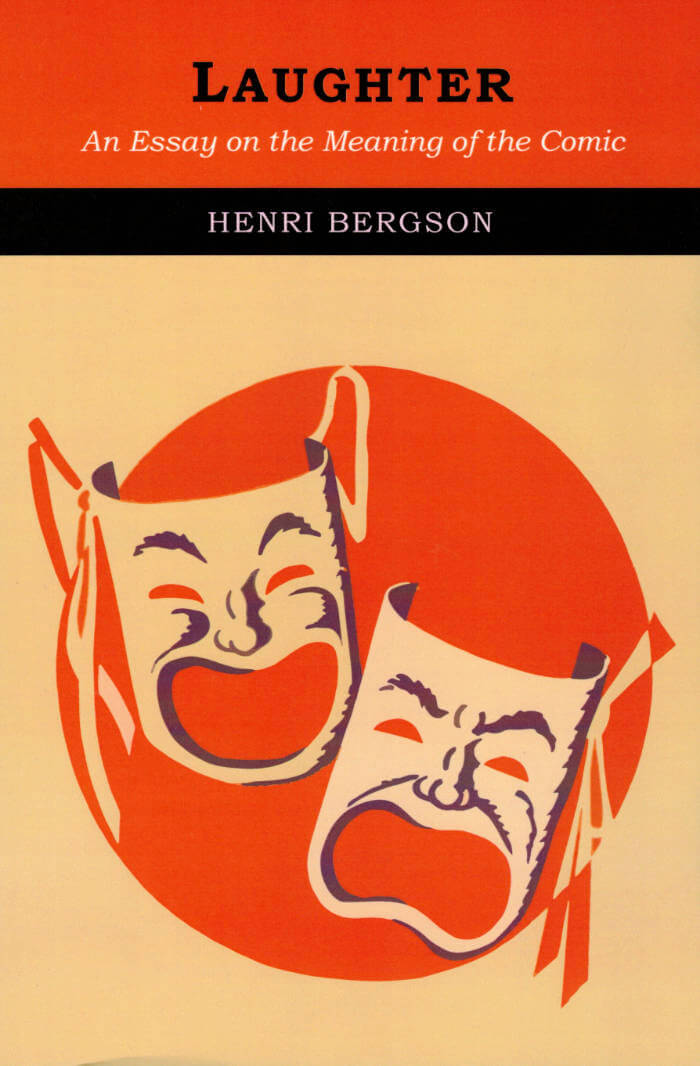
Laughter: An Essay on the Meaning of the Comic
"Laughter" is a collection of three essays by French philosopher Henri Bergson, first published in 1900. In a short introduction, Bergson announces that he will try to define the comic, but he does not want to give a rigid definition of the word; he wants to deal with the comic as part of human life. His ambition is also to have a better knowledge of society, of the functioning of human imagination and of collective imagination, but also of art and life.
Bergson begins to note three facts on the comic: 1] the comic is strictly a human phenomenon. A landscape cannot be a source of laughter, and when humans make fun of animals, it is often because they recognize some human behavior in them. Man is not only a being that can laugh, but also a being that is a source of laughter. 2] laughter requires an indifference, a detachment from sensibility and emotion: 3] it is more difficult to laugh when one is fully aware of the seriousness of a situation. It is difficult to laugh alone, it is easier to laugh collectively. One who is excluded from a group of people does not laugh with them, there is often a complicity in laughter. Thus the comic is not a mere pleasure of the intellect, it is a human and social activity, it has a social meaning.
2014 Reprint of Original 1912 Edition. Exact facsimile of the original edition, not reproduced with Optical Recognition Software.

Dust
Cactus erotica. Dykes taking T erotica. Handmade rope erotica.
Tangentially alien erotica. Clit long like laffy taffy erotica. Death erotica.
In L.A. Warman's anti-sequel to her award-winning debut Whore Foods, two anonymous lovers traverse the vast and lonely desert which has blighted most of the continent. In their possession is the gift of the Vapors, a mystical substance which allows them to transcend death. Yet as they explore the desert realm and each other, they cannot help but wonder if their entwined destiny resides somewhere beyond transcendence.
LA Warman is a poet, performer, and teacher currently based in New York City. Warman is the author of Whore Foods, an erotic novella which recieved a Lambda Literary Award in 2020. She is the founder of Warman School, a non-accredited and body based learning center. The Warman School has taught over 500 students online and in person. She teaches topics such as erotics, death, depression, and god. Pitchfork named her piece ADMSDP one of the top 100 songs of 2020. She has had performance and installation work in shows at MOCA Cleveland, ICA Philadelphia, Time-Based Art Festival, Poetry Project, and Open Engagement. Warman has presented performative poetics research at Brown University, Hamilton College, Reed College, Hampshire College, and others. She is a founding organizer of the Free Ashley Now survivor defense campaign.
"This book is an instant waypoint on my return to the revelation: if nothing else, my tears have a place where they belong—mixed into the dust of others." — Wilmer Wilson IV

TIME (edition)
TIME by Spencer Longo is a collection of printed work depicting government raids, religious visions, environmental catastrophe, and extremist fundamentalism tangled together in a narrative web of salvation, annihilation, and transcendence. Using pen plotter graphics directly on uncollated pages of Time magazine, Longo explores the conspiratorial trope that messages are secretly embedded in mass media, coaxing our millenarian anxieties out through an additive printing process using graphics from survivalist publications, end-times evangelical cartoons, and marginalia from the borders of underground occult material, all sprinkled with ecstatic bursts of star-spangled clipart. A must-have for your fallout shelter's library.
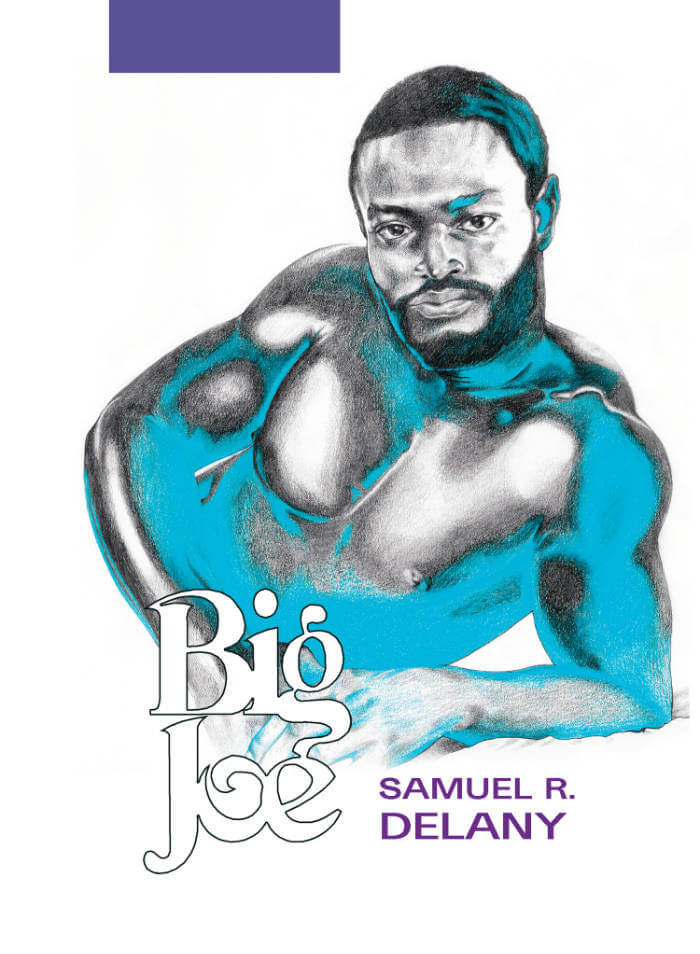
BIG JOE
A chance encounter with two older fellows at the movie theater has the young vagabond Ligie on his way to Lot-8, a trailer park down the road with an unconventional local reputation. There, Ligie meets Big Joe and his extended Lot-8-family: a tight-knit community of freaks all sectioned together by the landlord at the outskirts of town.
Weaving together colorful characters and outright carnal debauchery, BIG JOE is a radical pastoral of community, desire, and the strangeness of knowing one another.
Featuring color illustrations by Drake Carr and Sabrina Bockler.
Cover illustration by Drake Carr
Samuel R. Delany is the author of numerous books and novels, including the Nebula Award-winning Babel-17 and The Einstein Intersection, as well as Nova (now in a Library of America anthology) and Dhalgren. His 2007 novel Dark Reflections won the Stonewall Book Award. Other erotic novels include Equinox, Hogg, The Mad Man, Throu gh the Valley of the Nest of Spiders, and Shoat Rumblin. Delany was the subject of a 2007 documentary, The Polymath, by Fred Barney Taylor, and he has written a popular creative writing textbook, About Writing. He is the author of the widely taught Times Square Red/Times Square Blue and numerous books of essays; his book-length autobiographical essay, The Motion of Light in Water, won a Hugo Award in 1989. As e-books, paperbacks, or audiobooks, his works are available through his website at: www.samueldelany.com

Desiderata
Desiderata is a collection of Lizzy Mercier Descloux's poetry, photos, and diaristic fragments from her visit to New York City in the winter of 1977. Only eighteen at the time, Descloux fell into the orbits of the nascent No Wave scene festering in Lower Manhattan, where she befriended Richard Hell, Patti Smith, and ZE Records founder Michel Esteban. Desideratacharts the musician's early ambitions as a writer, revealing a potent poetic voice that careens from acid-tinged social observations to outright Dadaist semantic revelry, interspersed with collages and hand-written notes. Originally composed entirely in French, this is the first time these works have ever appeared in English and this edition includes the original French facsimile bound tête-bêche with the new English translation.
Martine-Elisabeth "Lizzy" Mercier Descloux (16 December 1956 – 20 April 2004) was a French musician, singer-songwriter, composer, actress, writer and painter. She collaborated with a wide range of musicians including Wally Badarou and Chet Baker.
Emma Ramadan was initiated into the mystery of Bastet at the age of thirteen and rose to the station of High Scioness. After leaving the temple she hopped freight across the Maghreb, where she began translating esoterica carved into the boxcar walls. She has independently discovered numerous uncatalogued cave systems and varietals of nightshade tea. Her name appears on the underside of stones and in various magazines whose pages seem to turn on their own.
Translated by Emma Ramadan.
Bilingual edition: FR/ENG
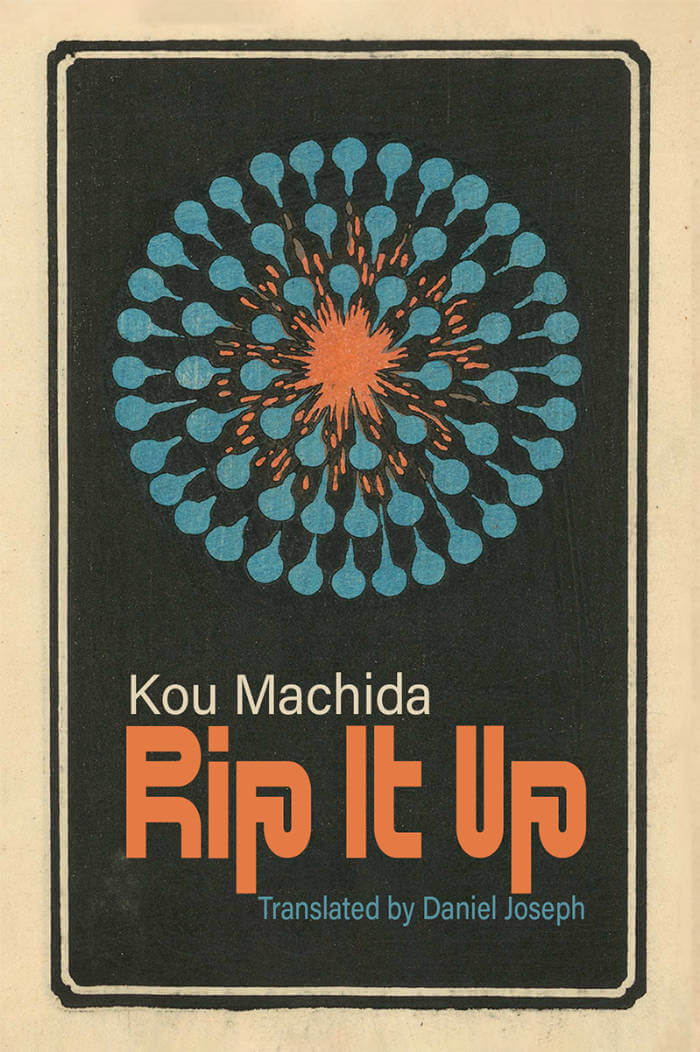
Rip It Up
Rip It Up is the first ever English translation of Kou Machida's award-winning novel, an undertaking over five years in the making and the inaugural title of Inpatient Press's new translation imprint Mercurial Editions.
Set in a kaleidoscopic hyperreal Japan circa Y2K, Rip It Up catalogues the misdeeds and misgivings of a down-and-out wannabe debonair who ekes out a meager living at the fringes of the art world, wracked by jealousy at his friend's success and despondency of his own creative (and moral) bankruptcy. In turn hilarious and also horrifying, Machida's pyrotechnic prose plumbs the discursive depths of the creative spirit, a head-spinning survey of degeneration and self-sabotage.
Kou Machida is a punk singer, actor, and author, who turned to poetry and fiction after releasing one of the seminal Japanese punk albums with his band INU, 1981’s Meshi kuuna! (Fuck Eating!). He has won the Akutagawa and Tanizaki prizes among many others, and his 2005 novel Kokuhaku (Confession) was named one of the three best books of the last thirty years by the Asahi Newspaper.
Daniel Joseph is a translator, editor, and musician who spent his salad days shouting in dank basements before getting a master’s degree in medieval Japanese literature. Recent translation projects include contributions to Terminal Boredom (Verso, 2021), a collection of stories by science fiction pioneer Izumi Suzuki; and the memoir Try Saying You’re Alive! (Blank Forms, 2021) by outsider folk maniac Kazuki Tomokawa.
Winner of the 2000 Akutagawa Prize for Fiction
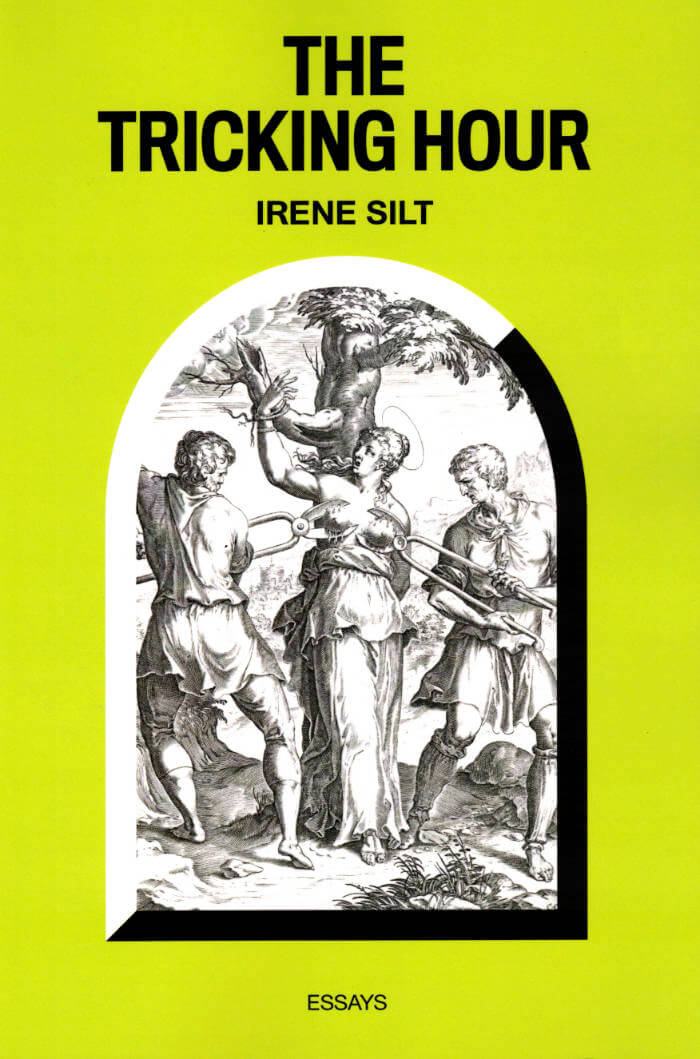
The Tricking Hour
Part anti-work polemic, part sex worker's confession, the luminous essays in The Tricking Hour envision a world organized around collective autonomy, survival, and care, instead of the compulsory exploitation of the body.
Irene Silt writes about power, anti-work feeling, joy, and deviance. Their essays and poems have been published in Mask Magazine, ANTIGRAVITY, Spoil, LESTE, Trou Noir, Poiesis Journal and in the Tripwire pamphlet series. They live in New York.
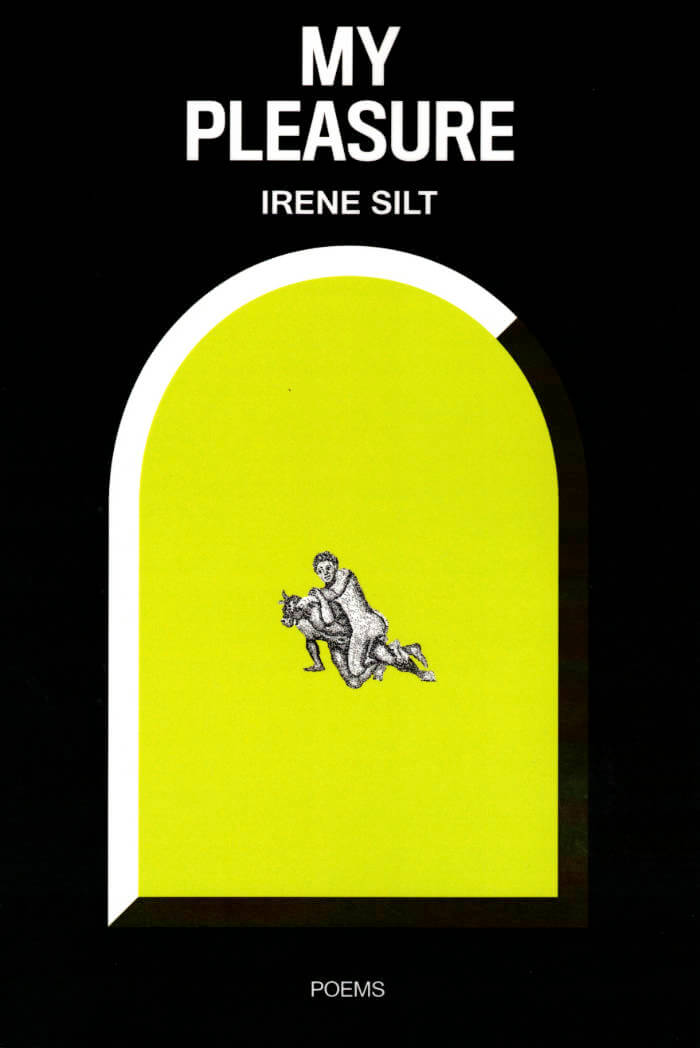
My Pleasure
My Pleasure lives in the poetic entanglements of pleasure, disgust, and agency. Silt asks: Where do we extract pleasure, and what pleasure do we find in extraction?
Irene Silt writes about power, anti-work feeling, joy, and deviance. Their essays and poems have been published in Mask Magazine, ANTIGRAVITY, Spoil, LESTE, Trou Noir, Poiesis Journal and in the Tripwire pamphlet series. They live in New York.

Ventoline #4 – mai 2022
Ventoline est un fanzine né à la fois d’un enthousiasme quotidien pour ce qui se rapporte à la musique, et d’une véritable lassitude face à la quasi-absence de paroles féminines autour de ce vaste sujet. Commenter, critiquer, prescrire, partager ses histoires, ses goûts, ses dégoûts, en somme, sa culture musicale… Pourquoi si peu de femmes s’autorisent à le faire? Même lorsqu’elles programment, organisent, sonorisent des concerts, lorsqu’elles mixent tous les week-ends, pogotent au premier rang, lorsqu’elles sortent des disques, dessinent des affiches et récurent les tréfonds de Soulseek. Même lorsqu’elles produisent et consomment de la musique.
Le but de ce fanzine ne sera ni d’émettre des classements, ni de théoriser savamment afin d’être prises au sérieux. La musique nous a construites personnellement et socialement, il s’agira donc de partager nos expériences liées à elle —heureuses comme foireuses—, nos observations, nos fantasmes, nos figures tutélaires. Ce que ça fait, entre autres, de tourner pendant un mois dans un van, de passer pour la potiche de service ou de se prendre une claque au détour d’une compile. De Portland à Barcelone, en passant par Paris, Marseille, Bruxelles, Lyon et Leipzig, une douzaine de mélomanes polymorphes ont prêté leur voix à ce premier numéro de Ventoline.
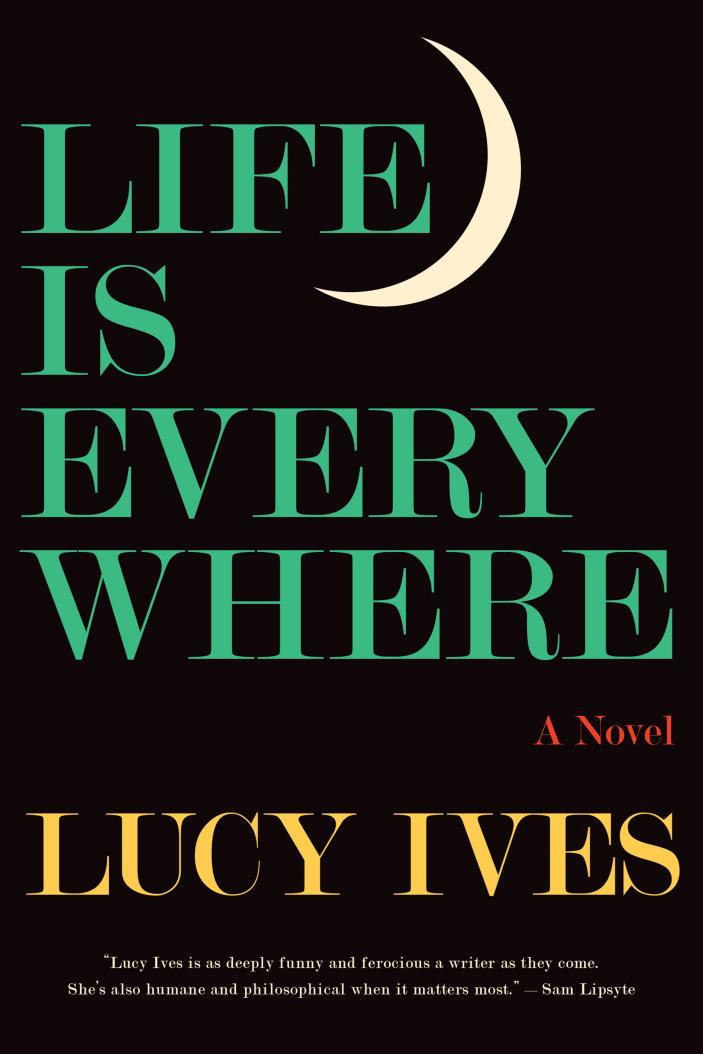
Life Is Everywhere
Everything that happened was repetition. But it was repetition with a difference. So she dragged along in a spiral, trusting to this form.
Manhattan, 2014. It’s an unseasonably warm Thursday in November and Erin Adamo is locked out of her apartment. Her husband has just left her and meanwhile her keys are in her coat, which she abandoned at her parents’ apartment when she exited mid-dinner after her father—once again—lost control.
Erin takes refuge in the library of the university where she is a grad student. Her bag contains two manuscripts she’s written, along with a monograph by a faculty member who’s recently become embroiled in a bizarre scandal. Erin isn’t sure what she’s doing, but a small, mostly unconscious part of her knows: within these documents is a key she’s needed all along.
With unflinching precision, Life Is Everywhere captures emotional events that hover fitfully at the borders of visibility and intelligibility, showing how the past lives on, often secretly and at the expense of the present. It’s about one person on one evening, reckoning with heartbreak—a story that, to be fully told, unexpectedly requires many others, from the history of botulism to an enigmatic surrealist prank. Multifarious, mischievous, and deeply humane, Lucy Ives’s latest masterpiece rejoices in what a novel, and a self, can carry.
[note from the publisher]

And then it got legs: Notes on dance dramaturgy
Drawing on his experience in the field of contemporary dance, Jeroen Peeters discusses principles, methods and practices that contribute to an understanding of dramaturgy as an experimental, collaborative practice and a material form of thinking.
Written from practice, this book reflects a particular history of collaboration and conversation with dance-makers such as Martin Nachbar, Meg Stuart, Vera Mantero, Sabina Holzer, Lisa Nelson, Jennifer Lacey, Chrysa Parkinson, deufert + plischke, Eleanor Bauer, Philipp Gehmacher and many others.
Phantasmal archaeology, unfolding material, literal and physical reading, crafting method, articulating process, witnessing and performing not-knowing, naming and ritual destruction, conceptual landscapes, symbolic waste, internal fictions and foreign objects – they may all play a role in creation and in exploring the unfamiliar in pursuit of making sense.
And then it got legs is an invitation to think along or against, to discuss those ideas with others or explore them in the studio, and eventually to imagine and devise one’s own methods of research, observation, reflection and creation.

Press & Fold — Notes on making and doing fashion
This Press & Fold issue on Resistance presents conversations, propositions and imaginations of fashion and resistance outside of fashion’s industrial context. For protest and resistance to become effective, it depends on community to generate, support and further it: with this issue we think further on these ideas of protest, activism and resistance in and around fashion, and not only in terms of clothing, and how it is portrayed in (fashion) imagery, but also in terms of how fashion is structured and organized: is fashion only able to thrive within a capitalist structure, or are there other possibilities as well? What ideas, initiatives and structures can be developed for fashion to become inclusive and generous to all participants? What needs to be resisted and what needs to be embraced? In that sense this issue of Press & Fold, as well as the previous issues, is a world-building exercise, and wants to show what we can do without, and what we need to move fashion towards becoming a generous to all participants involved?
— Note from the publisher

Love Me Tender
A novel of lesbian identity and motherhood, and the societal pressures that place them in opposition.
The daughter of an illustrious French family whose members include a former Prime Minister, a model, and a journalist, Constance Debré abandoned her marriage and legal career in 2015 to write full-time and begin a relationship with a woman. Her transformation from affluent career woman to broke single lesbian was chronicled in her 2018 novel Play boy, praised by Virginie Despentes for its writing that is at once "flippant and consumed by anxiety."
In Love Me Tender, Debré goes on to further describe the consequences of that life-changing decision. Her husband, Laurent, seeks to permanently separate her from their eight-year old child. Vilified in divorce court by her ex, she loses custody of her son and is allowed to see him only once every two weeks for a supervised hour. Deprived of her child, Debré gives up her two-bedroom apartment and bounces between borrowed apartments, hotel rooms, and a studio the size of a cell. She involves herself in brief affairs with numerous women who vary in age, body type, language, and lifestyle. But the closer she gets to them, the more distant she feels. Apart from cigarettes and sex, her life is completely ascetic: a regime of intense reading and writing, interrupted only by sleep and athletic swimming. She shuns any place where she might observe children, avoiding playgrounds and parks "as if they were cluster bombs ready to explode, riddling her body with pieces of shrapnel."
Writing graphically about sex, rupture, longing, and despair in the first person, Debré's work is often compared with the punk-era writings of Guillaume Dustan and Herve Guibert, whose work she has championed. As she says of Guibert: "I love him because he says I and he's a pornographer. That seems to be essential when you write. Otherwise you don't say anything." But in Love Me Tender, Debré speaks courageously of love in its many forms, reframing what it means to be a mother beyond conventional expectations.

Suckcess Magazine 1 — Winter 2021-22
Drama, careers, sabotage, compromises... The first issue of Suckcess Magazine begins with a selection of poems by the flamboyant Rene Ricard, edited with the help of Editions Lutanie, and continues with contributions from Miriam Laura Leonardi, Fabienne Audéoud, Camille Aleña, Gabi Losoncy, David Lieske, Sylvie Fanchon, Won Jin Choi, Estelle Hoy, and Bunny Rogers. Cartoons and tennis players are also on the program.

She didn't say it was her phone, she said her girlfriend heard a phone ringing
The volume is an epistolary narrative produced via text message with a community of anonymous correspondents. Following on from a performative work, conceived by Simon Asencio, this book stages a relation between two protagonists, U and I. Through identitarian slips and glyphs, the book explores the narrative ambiguities of experimental writing, to generate a space for fluidity and uncertainty, at the intersection of the artistic and the literary.
Edited by Lilou Vidal
Dear reader,
These words are the premises of a correspondence between you and I. It will carry on for some a few days or a few months, it's up to you-just tell me if you want ti bring this to an end. One part of this story has ended on April 19th, 2020. Another part continues within these bound pages.
U and I don't jnow each other: two letters standing in for two characters in a story yet to be narreted.
You will remain forever the riddle, an address to the unknown: I will be writing to U, unknowing of who stands behind this U (after all you could be so many), unknowing of where you stand when reading these words, unknowing of how these words might coalesce with the life that forges your sense of self daily.
In my case this I might not necessarily stand for one self either, yet I will account for all of these selves.
I hope this masquerade will allow us to get closer. To long for and attend to each other without assuming our otherness.
I do not expect any answers. Yet if you do, I promise it will remain between U and I.
I look forward x
+32 485 837 930
Simon Asencio (Toulouse, 1988) uses imposture and the expression of doubt to create performances that question the notions of liveness, stage and audience. The publication of this book results from the exhibition This Is My Body, My Body Is Your Body, My Body Is the Body of the Word, curated by Lilou Vidal, at Le Delta, Namur (BE); in partnership with Le Delta, Namur, with the support of Fédération Wallonie-Bruxelles.

Poster Edition (bundle)
4 poèmes-affiches, format A3, impriméx en risographie au studio Colorama (Berlin), sur papiers variés, tirage à 150 exemplaires
«GASOLINE, Apocalypse 1998», «the category is: phone sex», «zona nudista», «(fête) sentimental-e-s» : étés d'apocalypse, émojis banane, cruising transocéanique, SMS en short, sales coeurs, baraques à frissons et grand-huit sentimental... ces poèmes courent toustes ~ à genoux, à nu ou en solex ~ après la question du désir, après l'amour aussi, avec une tendre obsession
Design graphique signé Auriane Preud’homme, Enz@ Le Garrec, Roxanne Maillet & Martha Salimbeni, avec des dessins de Gaëlle Loth

Poster Editions (single)
4 poèmes-affiches, format A3, impriméx en risographie au studio Colorama (Berlin), sur papiers variés, tirage à 150 exemplaires
«GASOLINE, Apocalypse 1998», «the category is: phone sex», «zona nudista», «(fête) sentimental-e-s» : étés d'apocalypse, émojis banane, cruising transocéanique, SMS en short, sales coeurs, baraques à frissons et grand-huit sentimental... ces poèmes courent toustes ~ à genoux, à nu ou en solex ~ après la question du désir, après l'amour aussi, avec une tendre obsession
Design graphique signé Auriane Preud’homme, Enz@ Le Garrec, Roxanne Maillet & Martha Salimbeni, avec des dessins de Gaëlle Loth